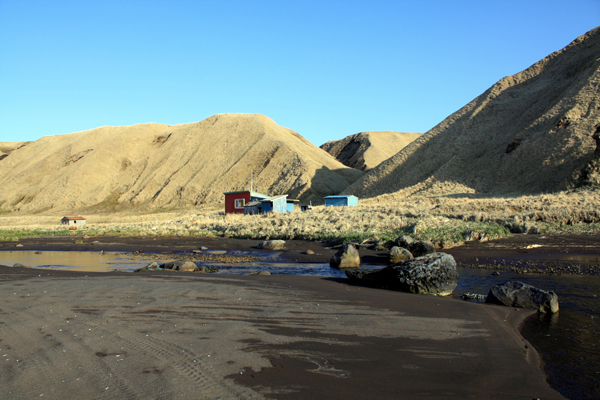
A pop-up subsistence school has opened in a remote corner of the Aleutians. Atka’s second-annual culture camp is meant to keep Unangan traditions going strong.
Earlier this spring, Danny Snigaroff visited the campsite where he’d be teaching younger folks how to fish and hunt.
“At culture camp, we don’t eat no hot dogs — no beef hamburgers, nothing [like that],” Snigaroff said. “It’s all Native food.”
Snigaroff and other Unangan elders grew up on sea lions, birds, and seal. And they’re still staples in Atka. That’s because most residents are still living a traditional subsistence lifestyle.
But it’s not as common in other Aleutian communities.
“There’s just not been a lot of transmission of all that knowledge and skills,” says Crystal Dushkin.
She’s the director of cultural affairs for Atka’s tribal council. Dushkin helped organize the community’s first-ever culture camp last summer. Putting traditional foods at the center made sense.
“It’s very specialized. It’s not something you could learn out of any kind of book,” Dushkin says. “I mean, sure, you could learn anatomy and all kinds of things about animals. But you can’t learn what these elders have to teach from any book.”
Or, in a classroom. That’s why the camp is being held on Korovin Beach in Atka. It’s a good place to learn about and gather plants. And it’s a good place to actually make camp.
“We’ll have all our meals and sleep out in the tents, whoever wants to,” says Dushkin, right up until the last day.
It falls on a Russian Orthodox holiday. So to honor saints Peter and Paul — and celebrate the end of camp — the village will hold a potluck. It’s another chance to gather around the foods that have sustained the culture for centuries.




